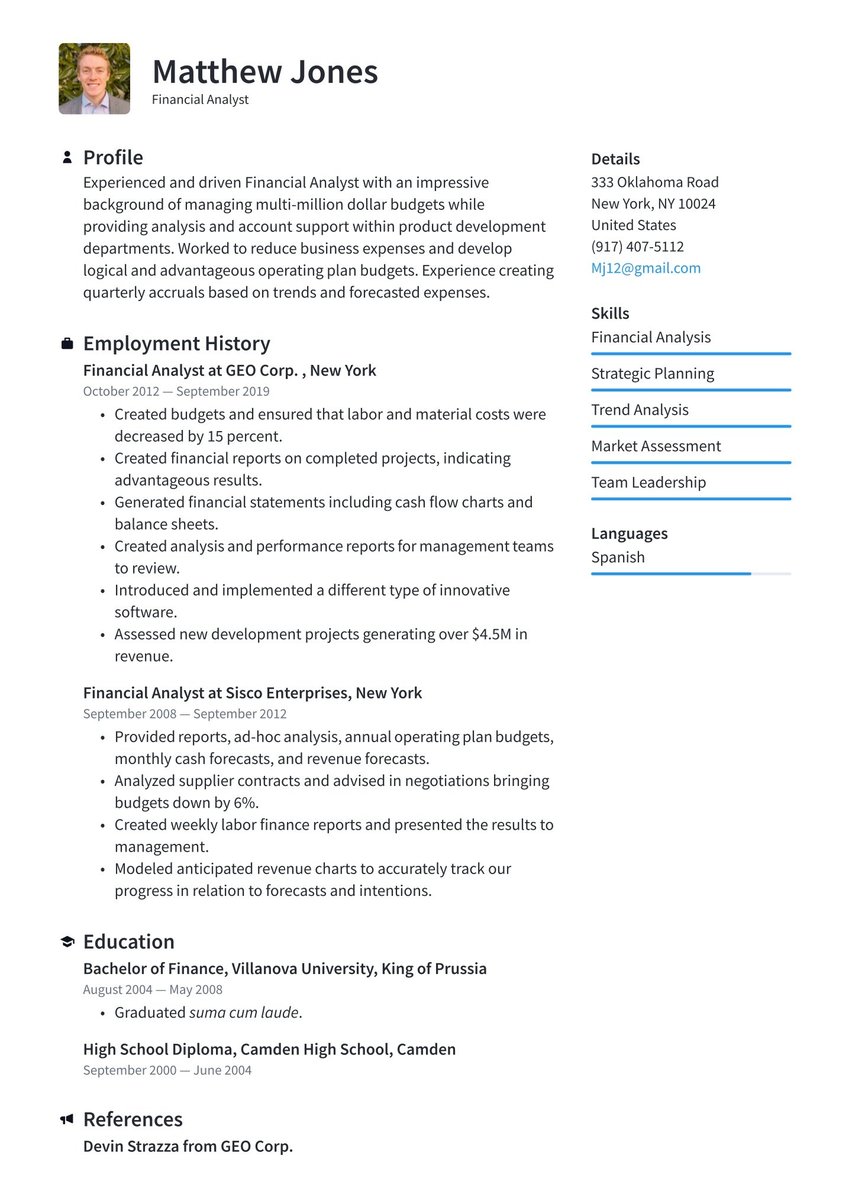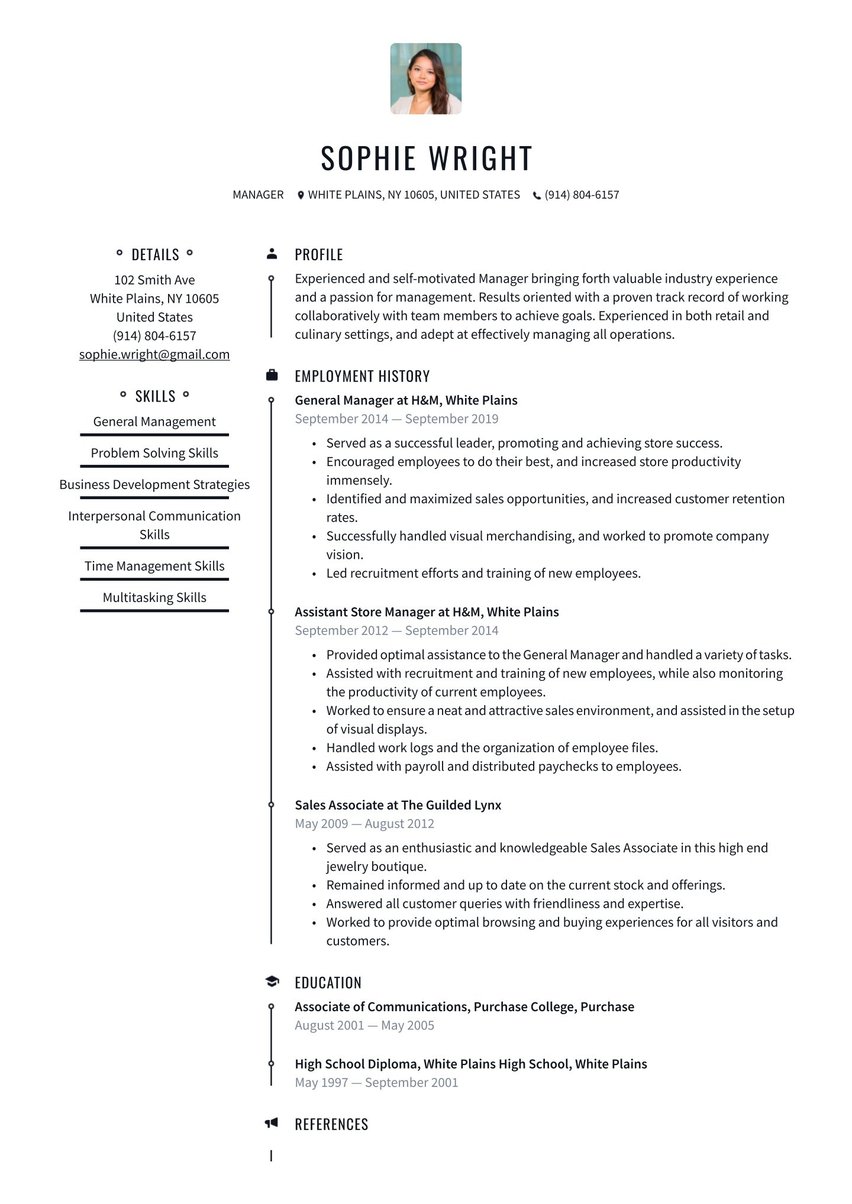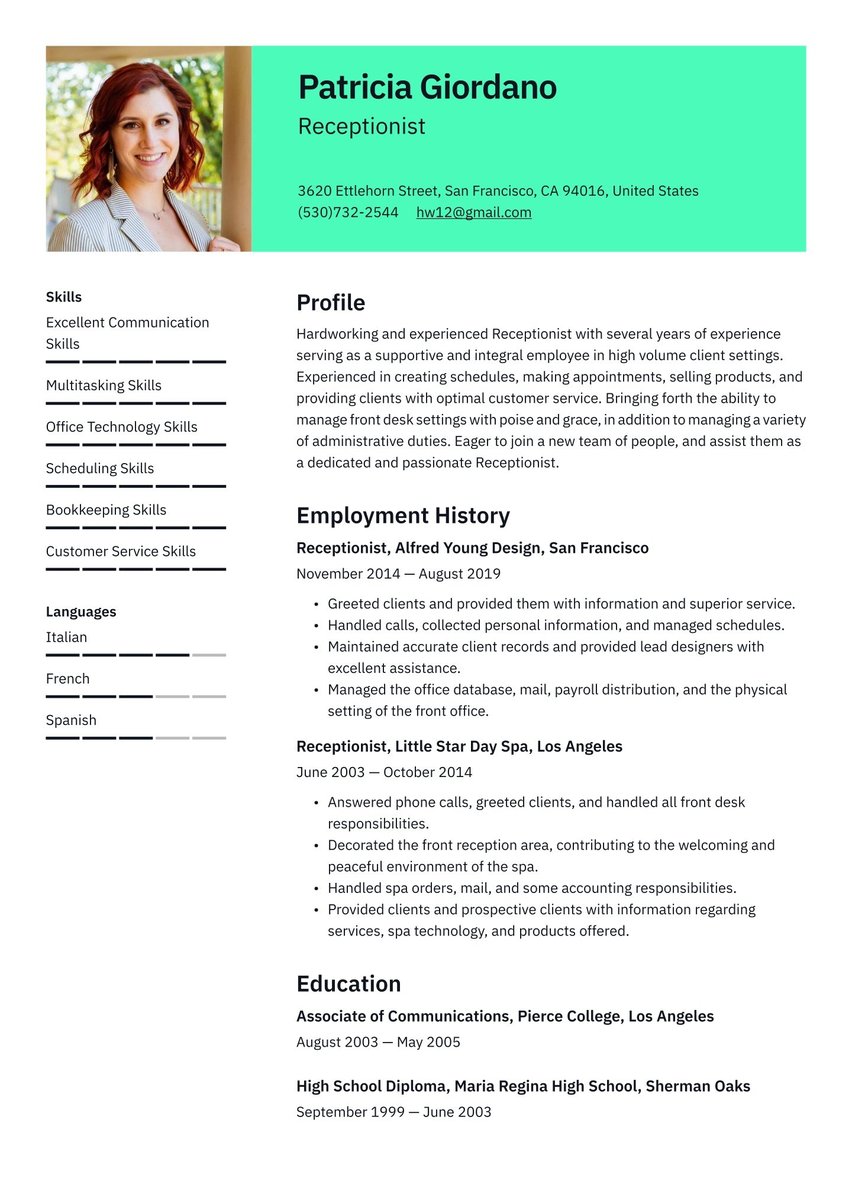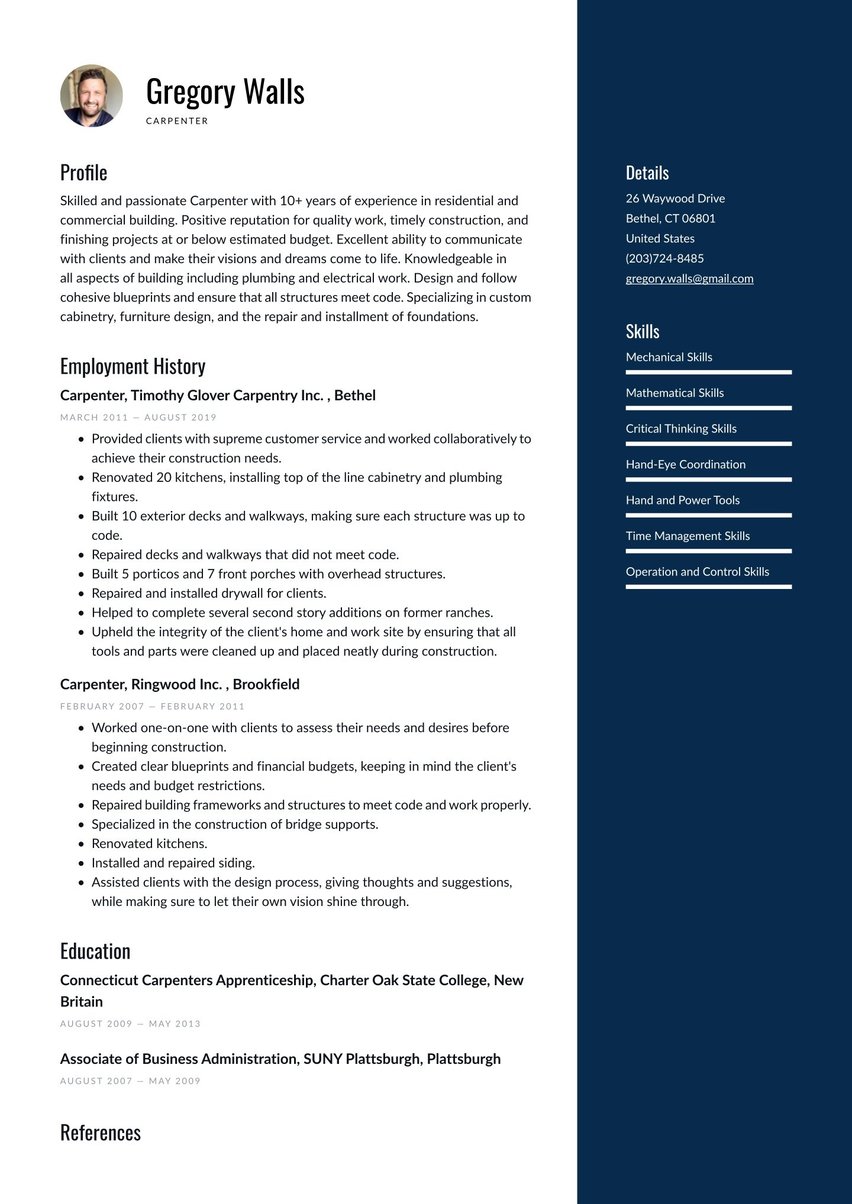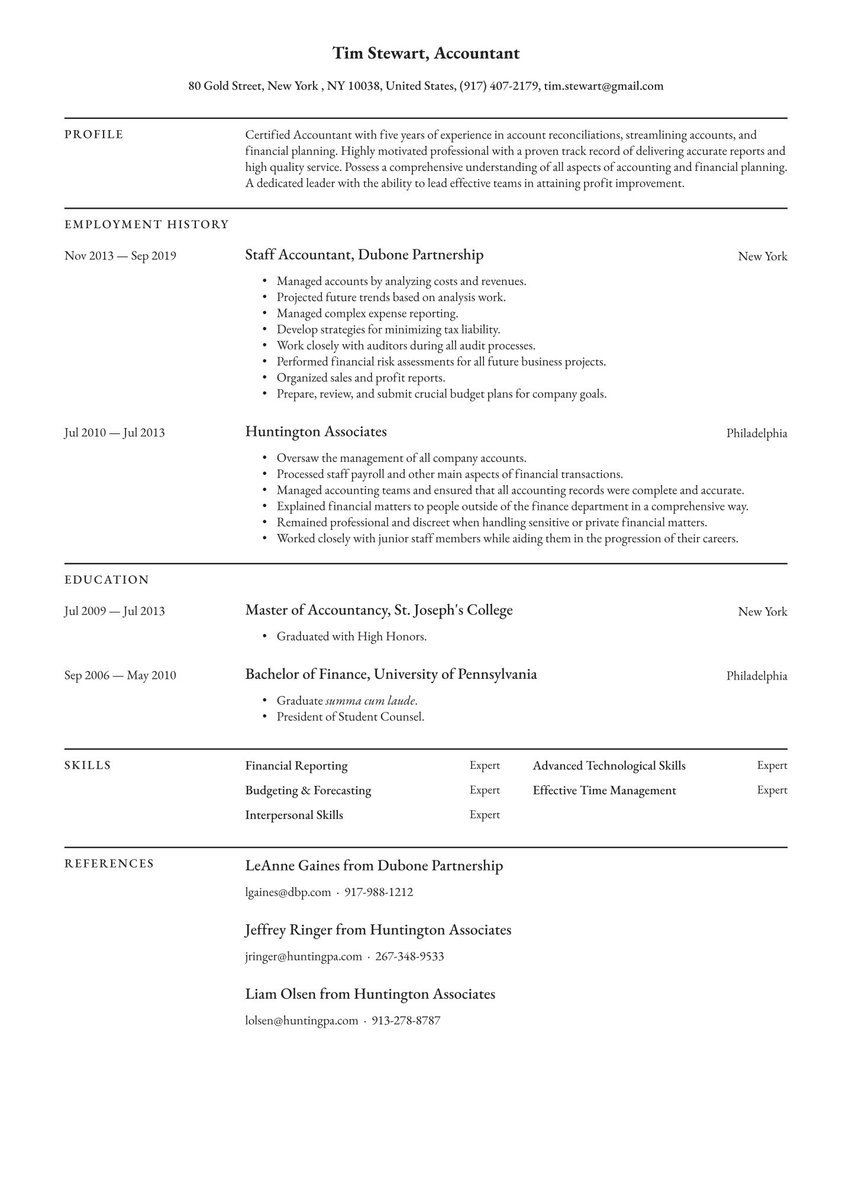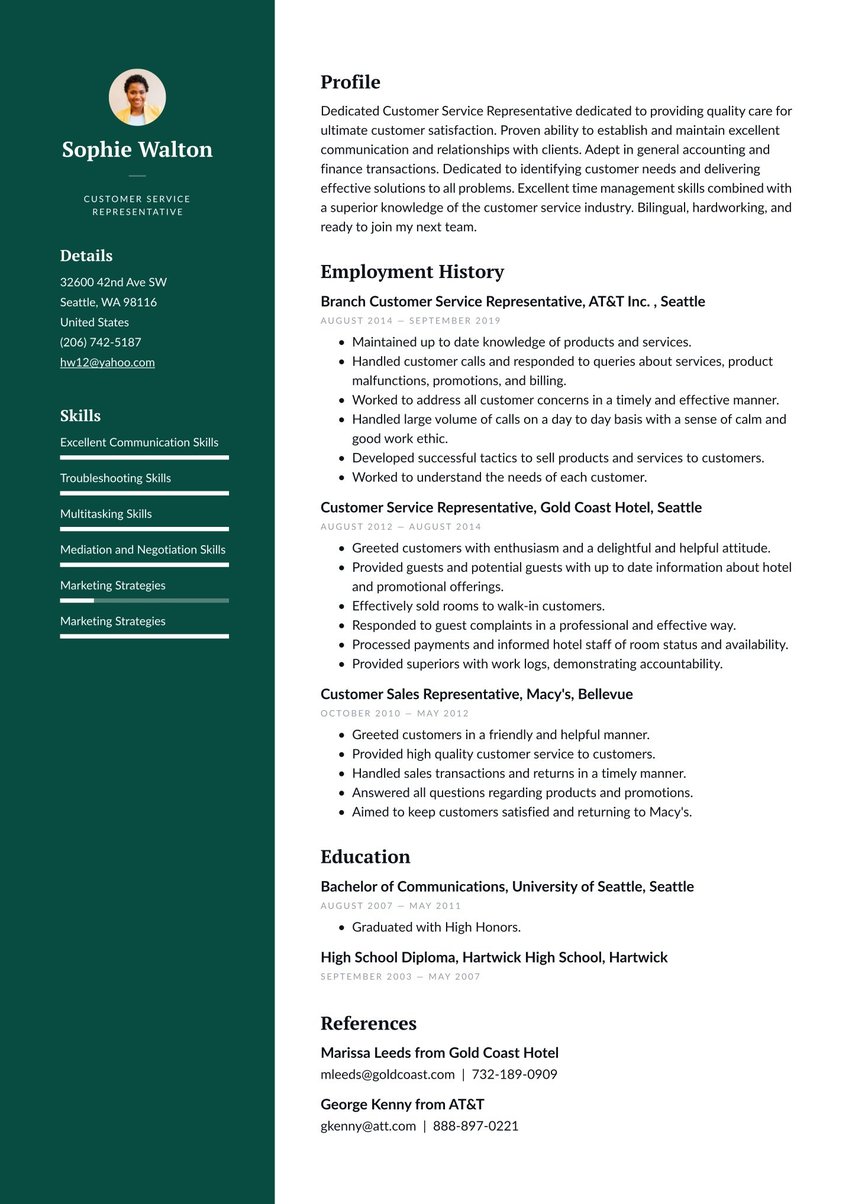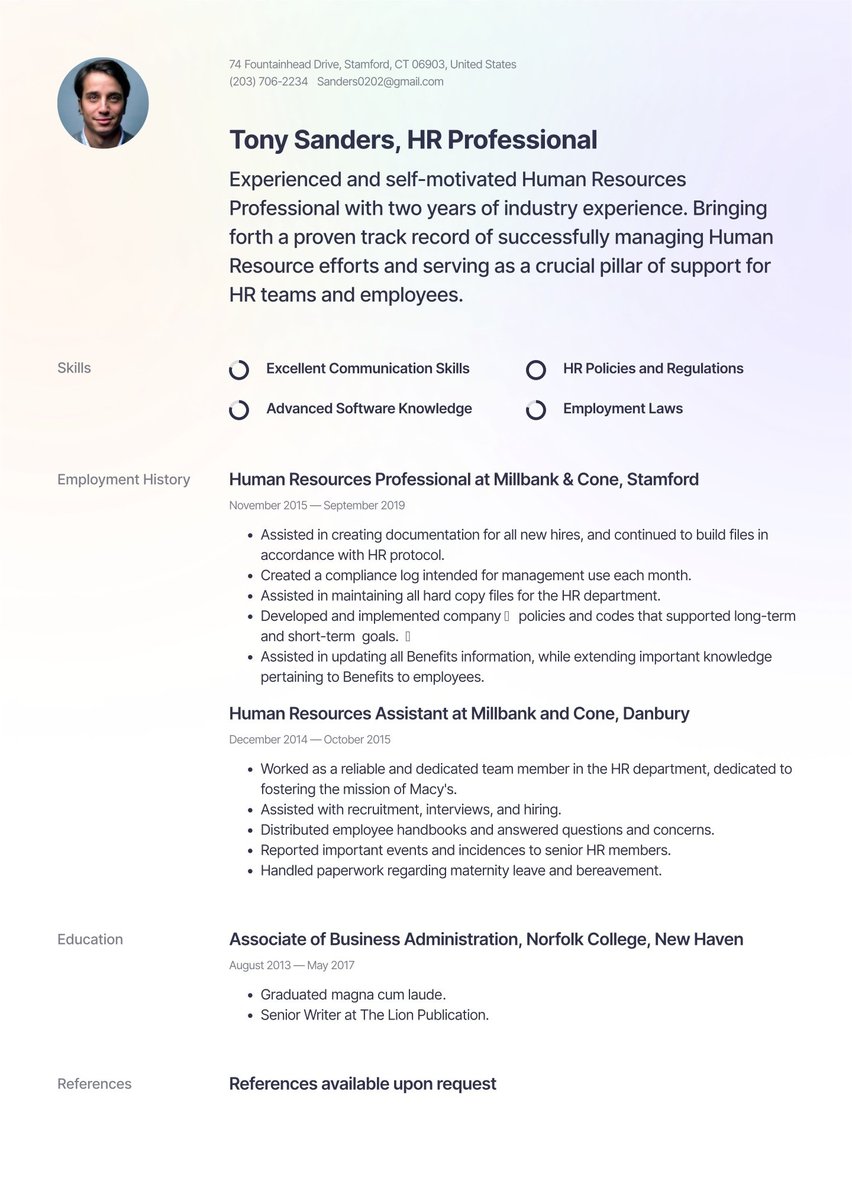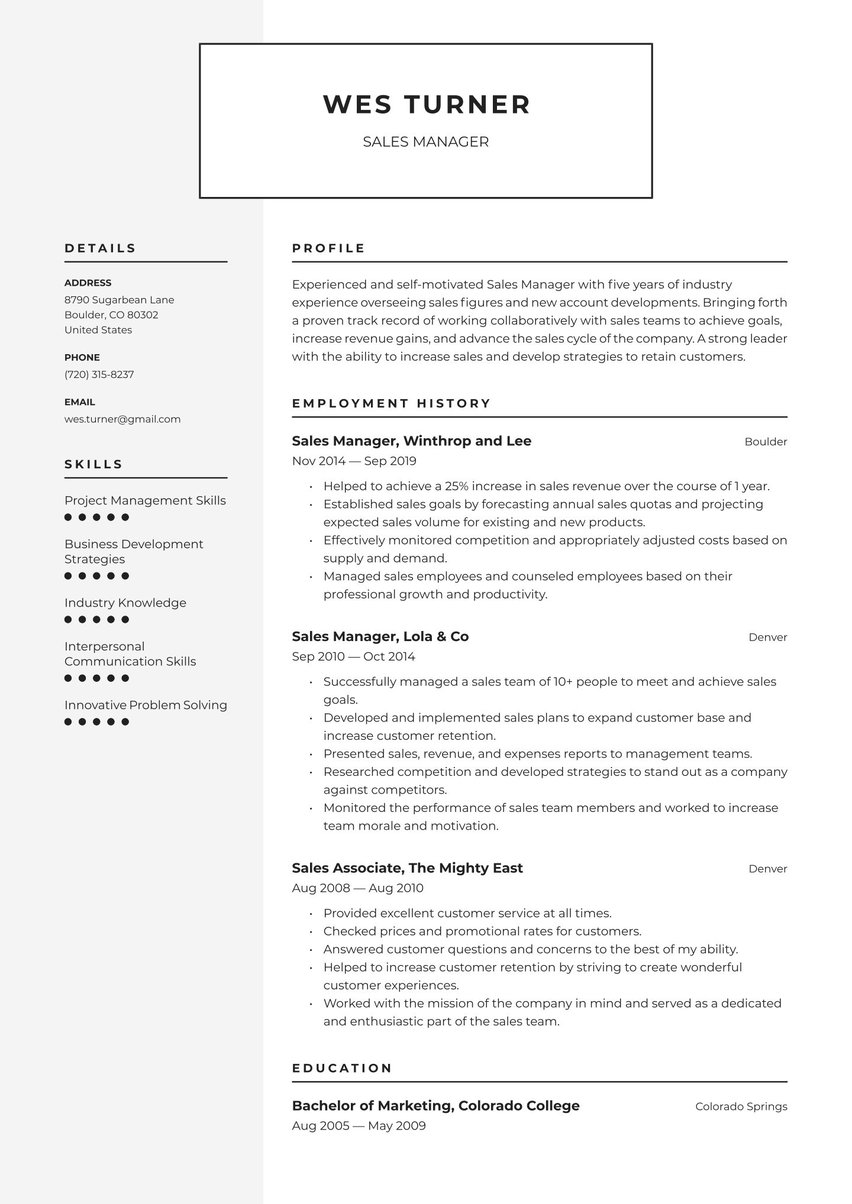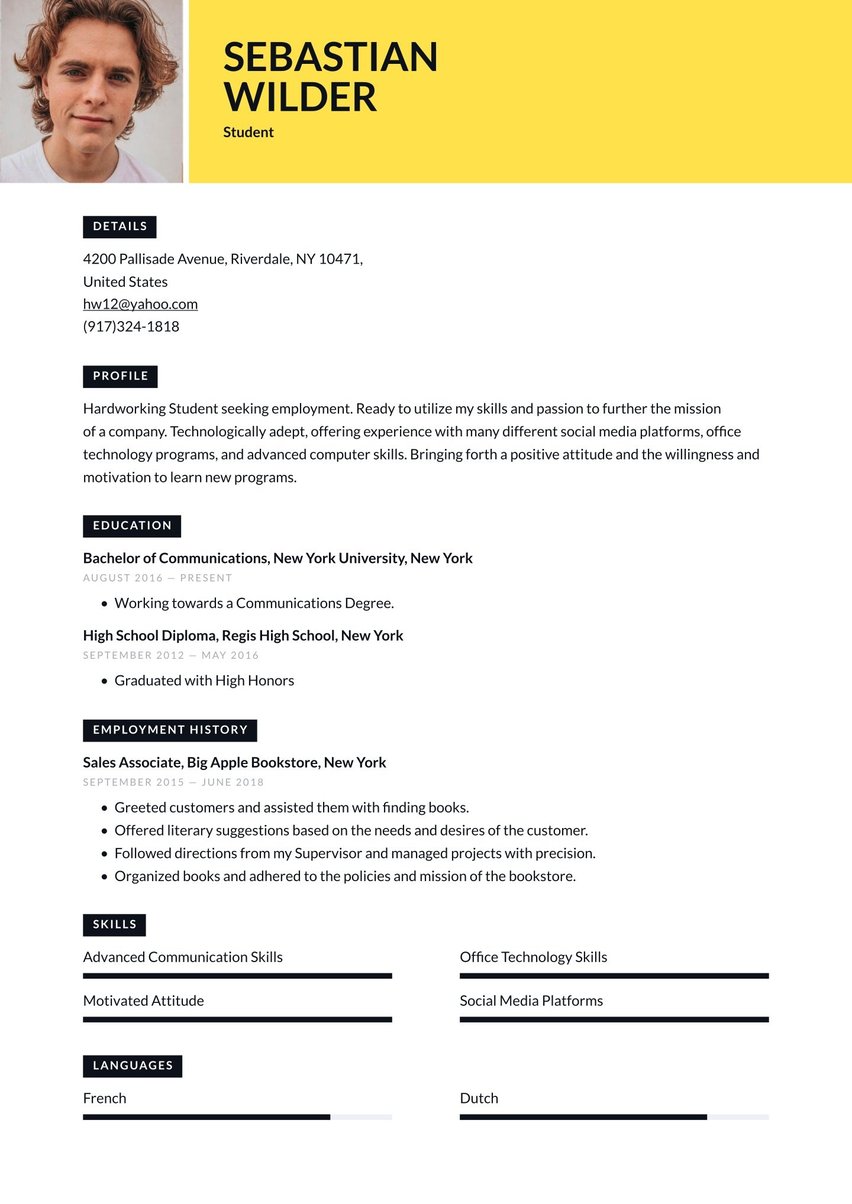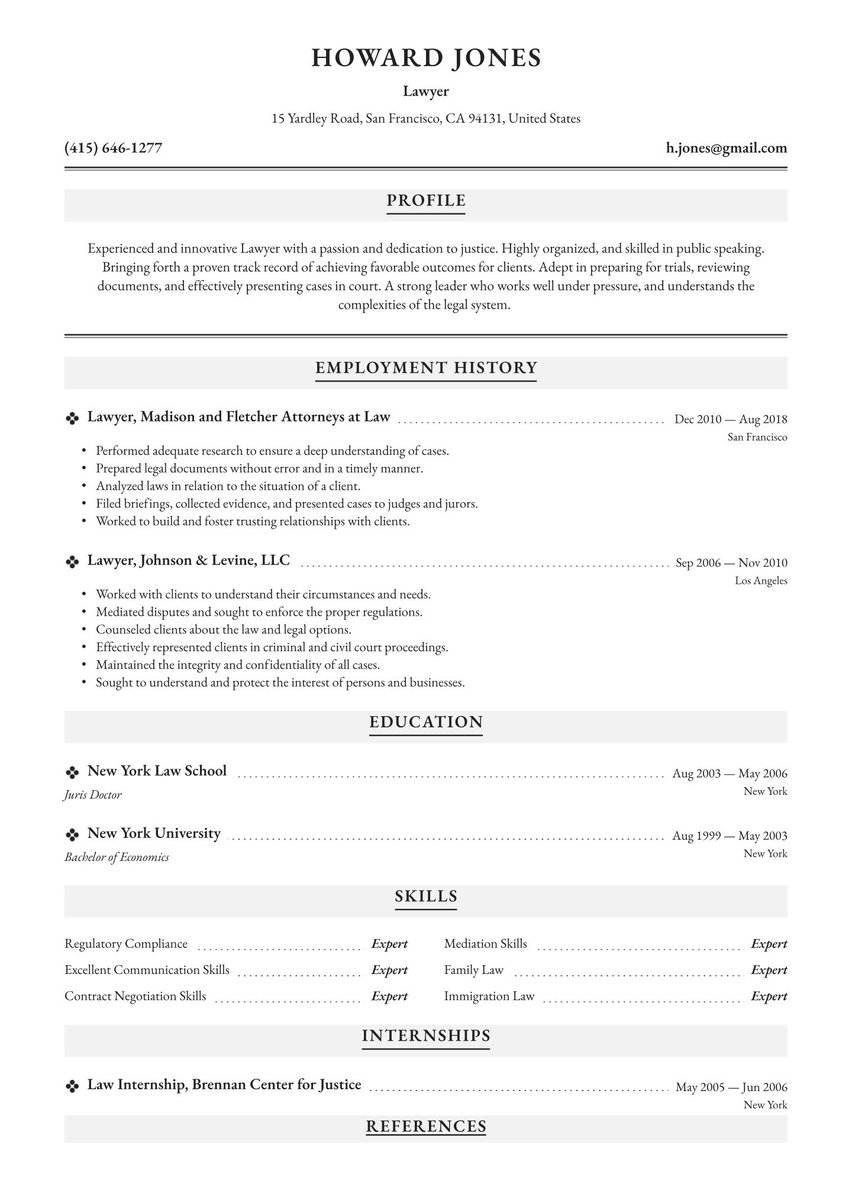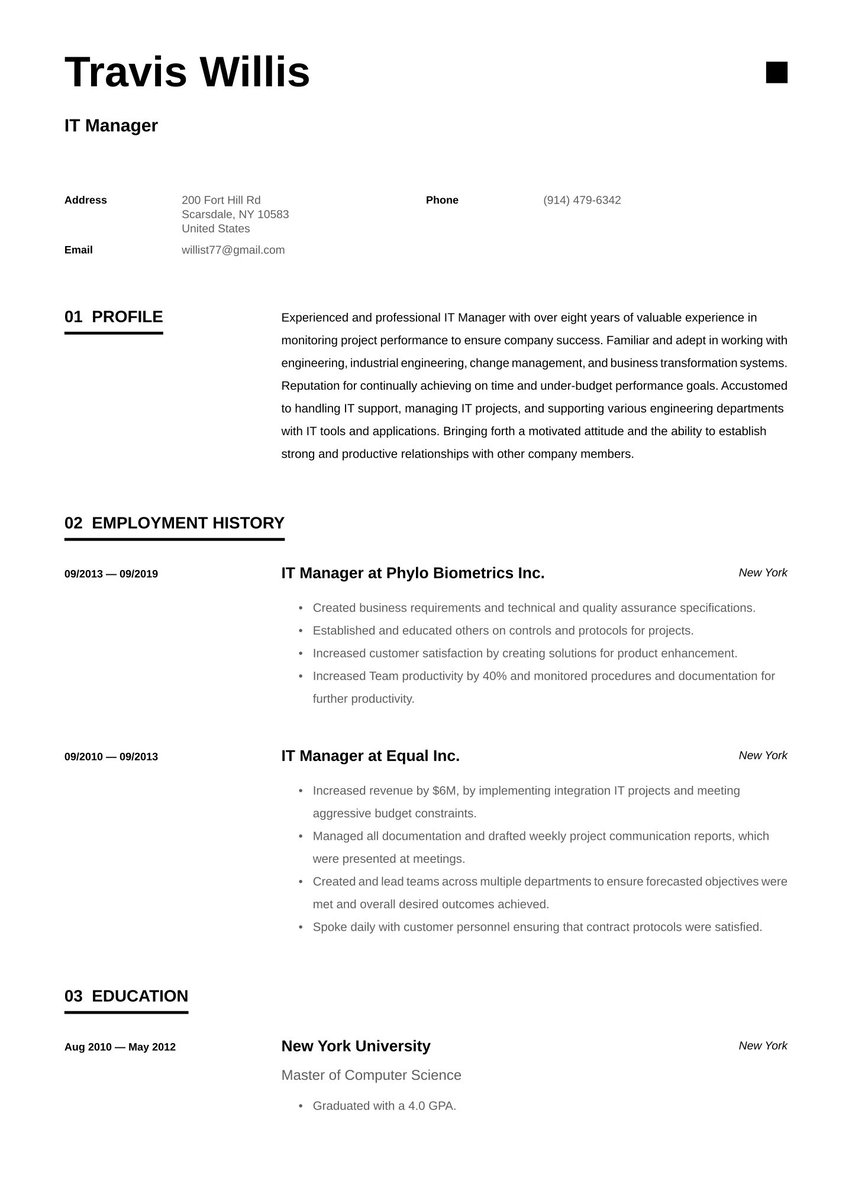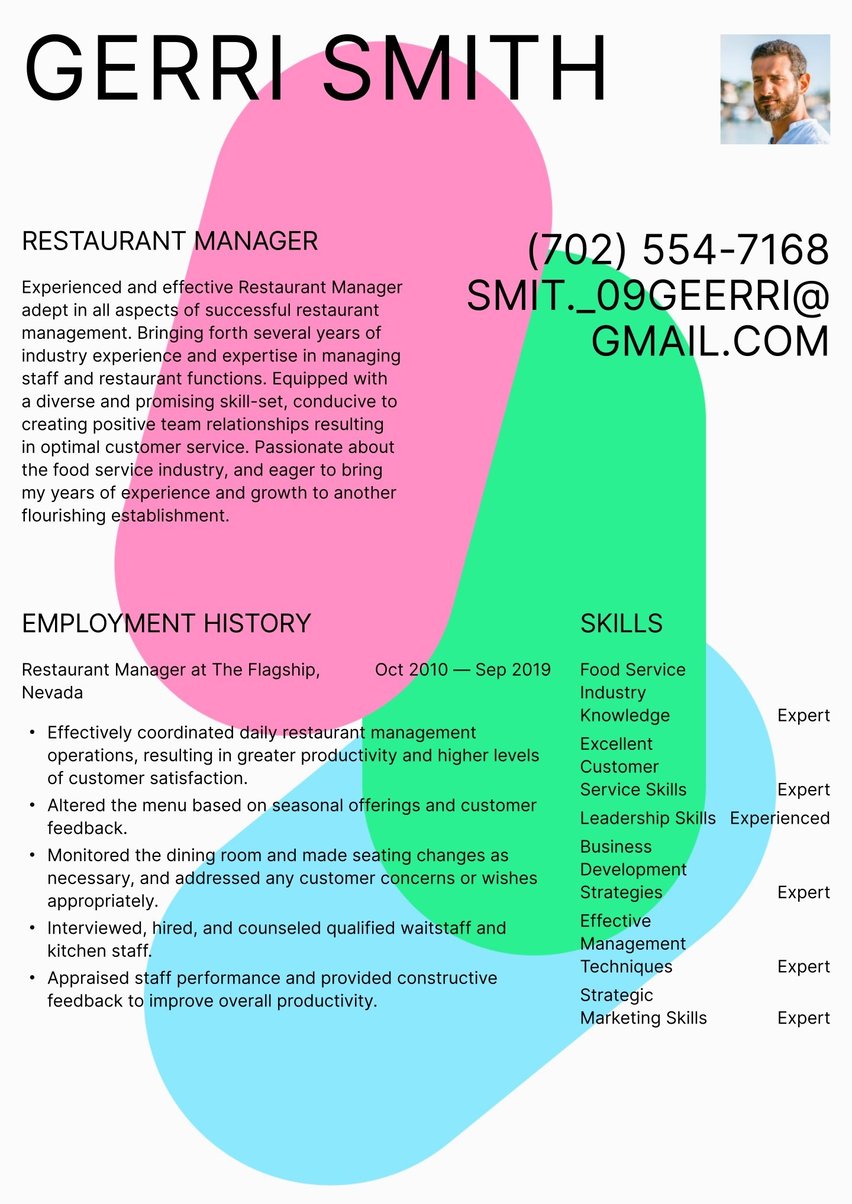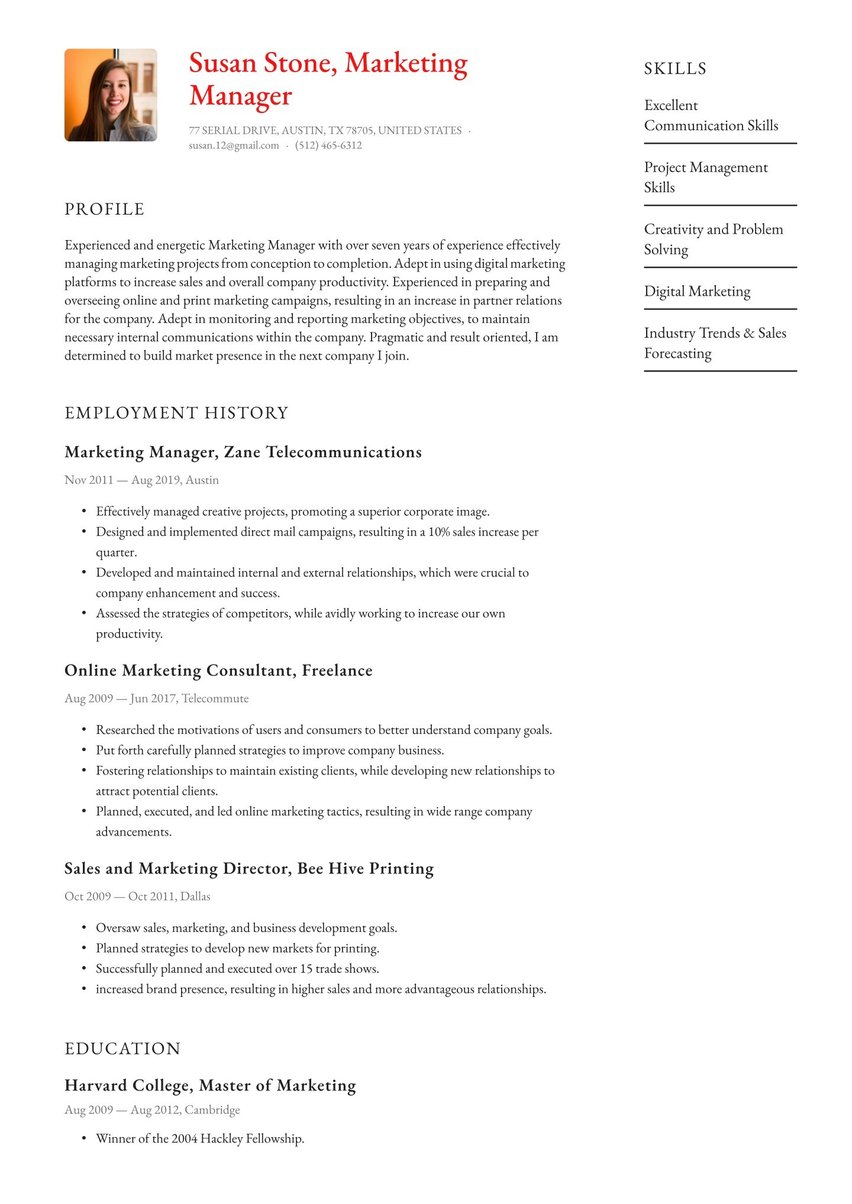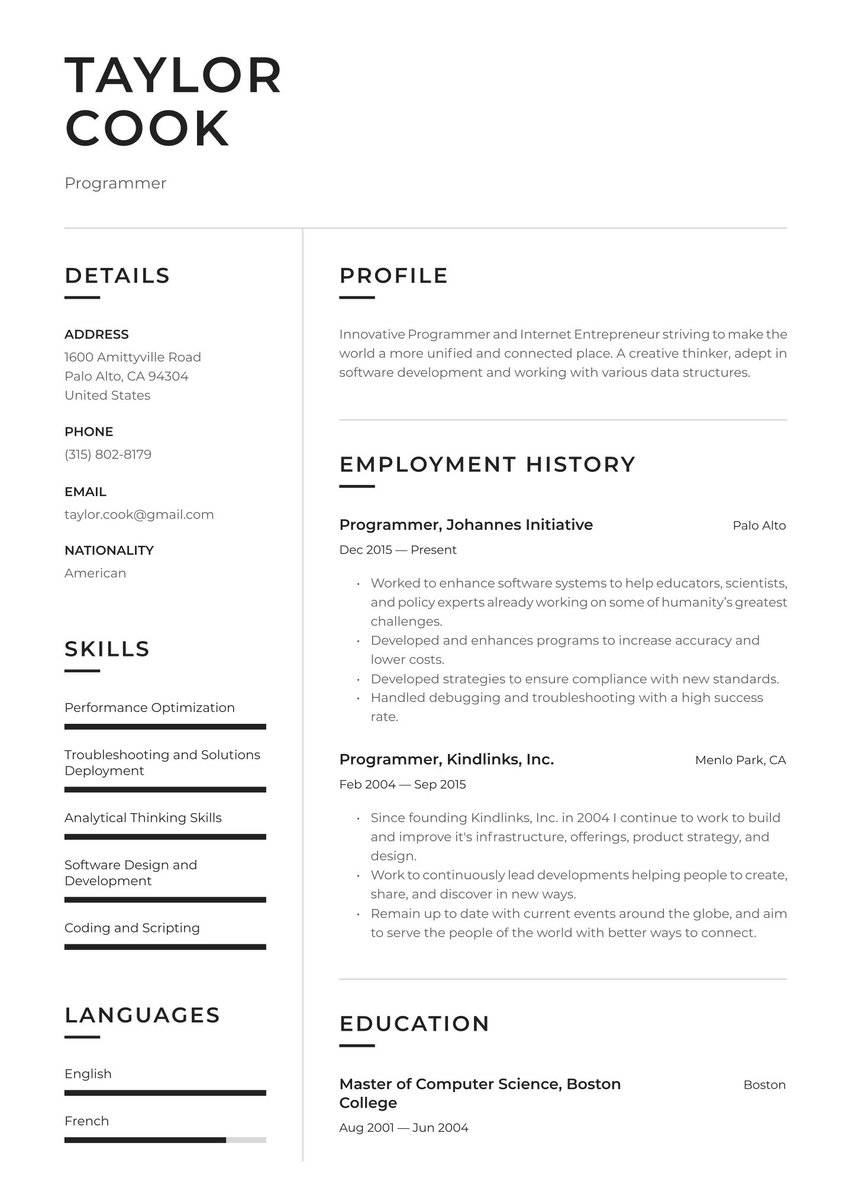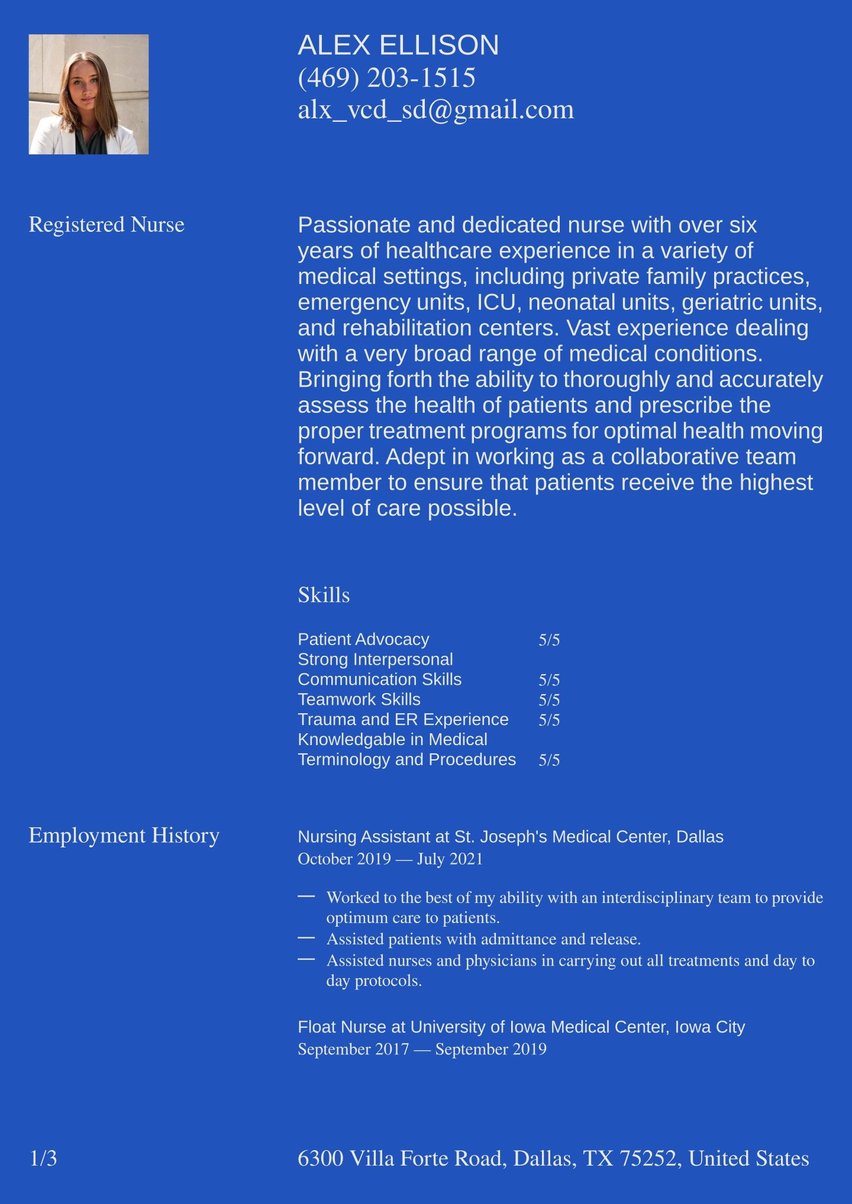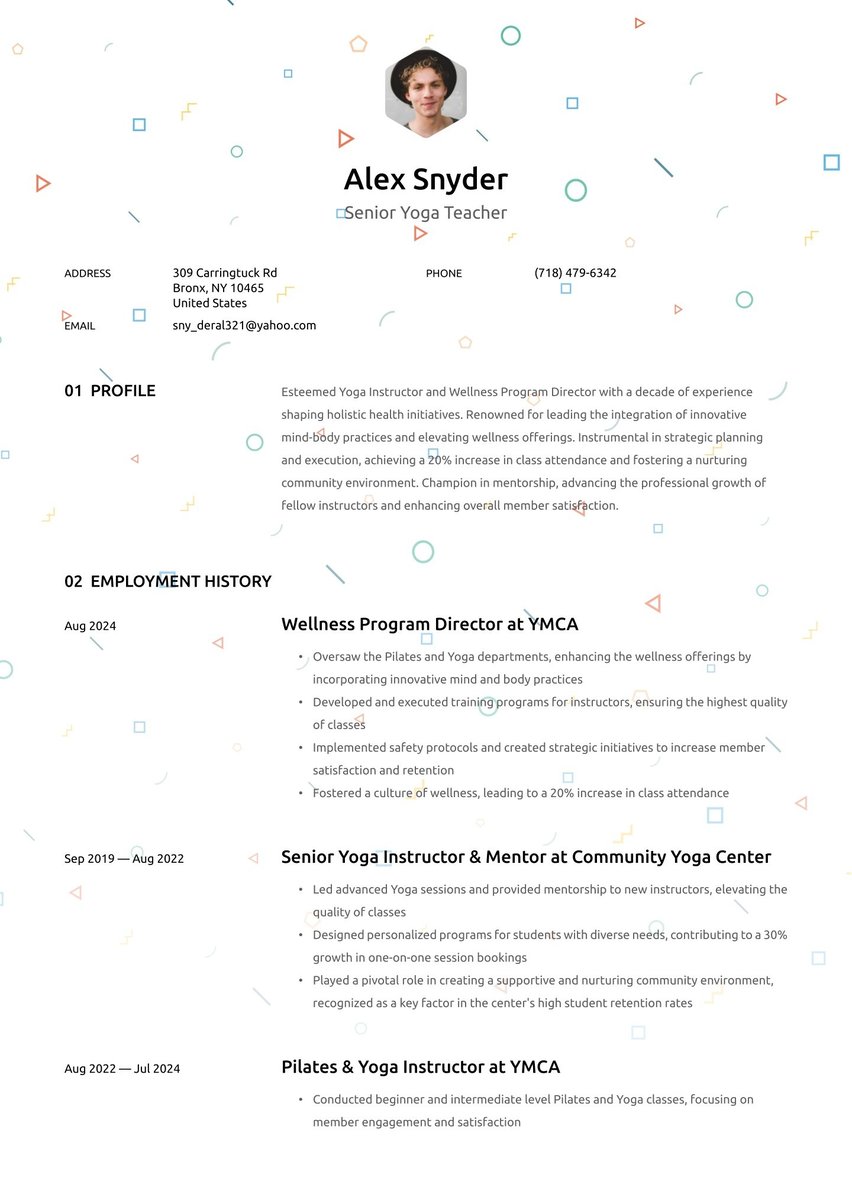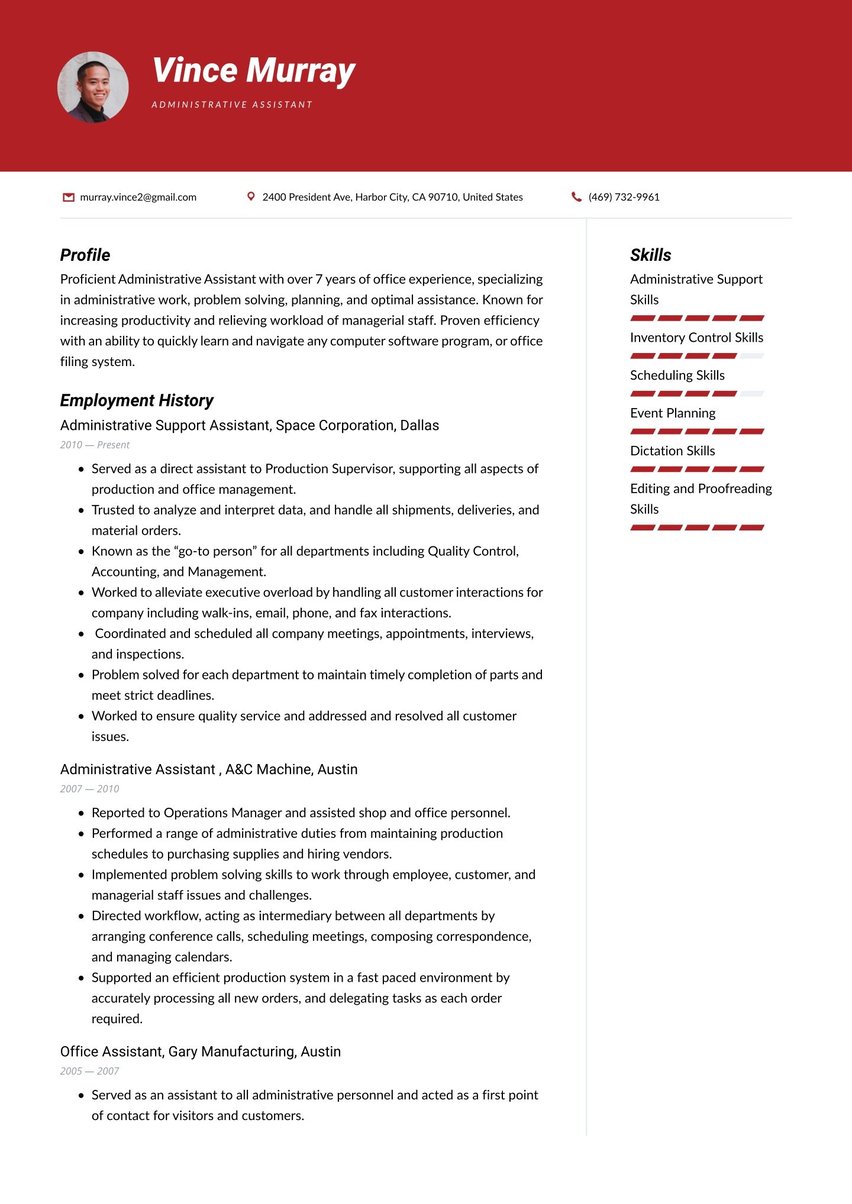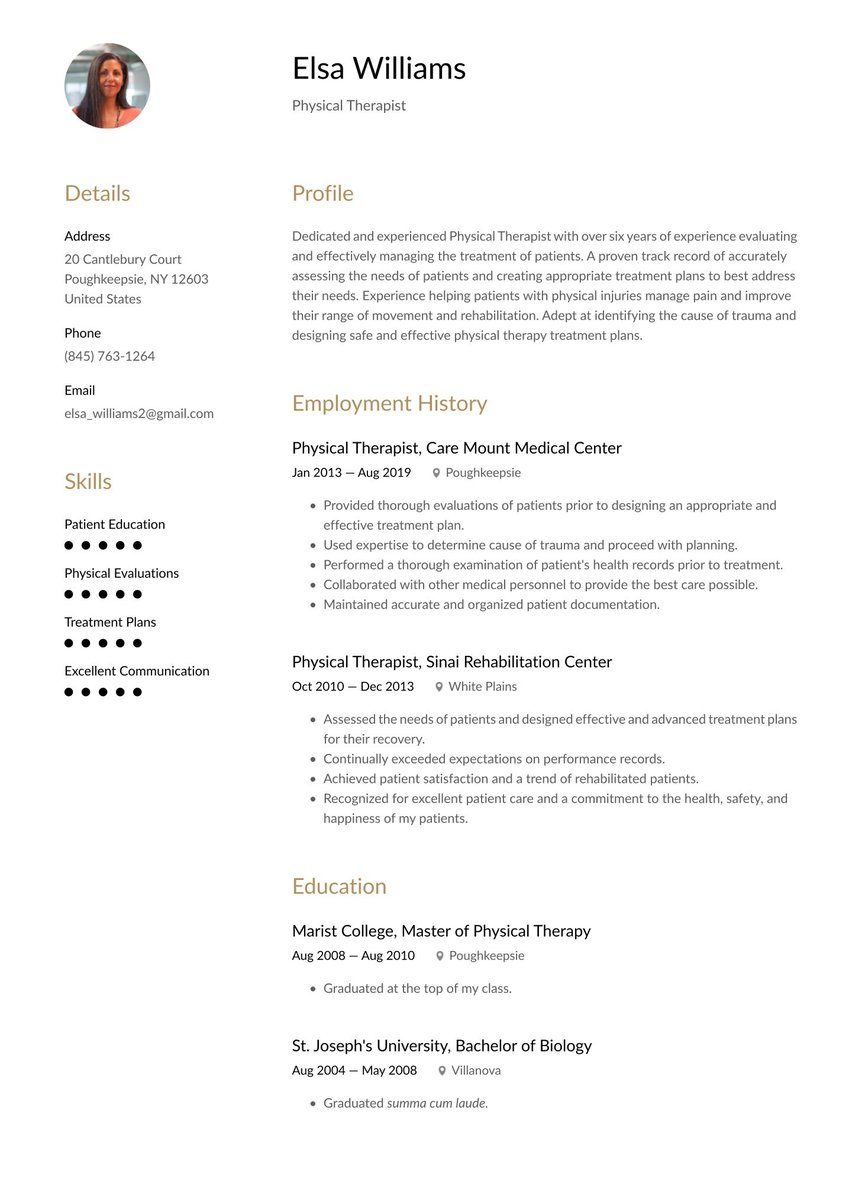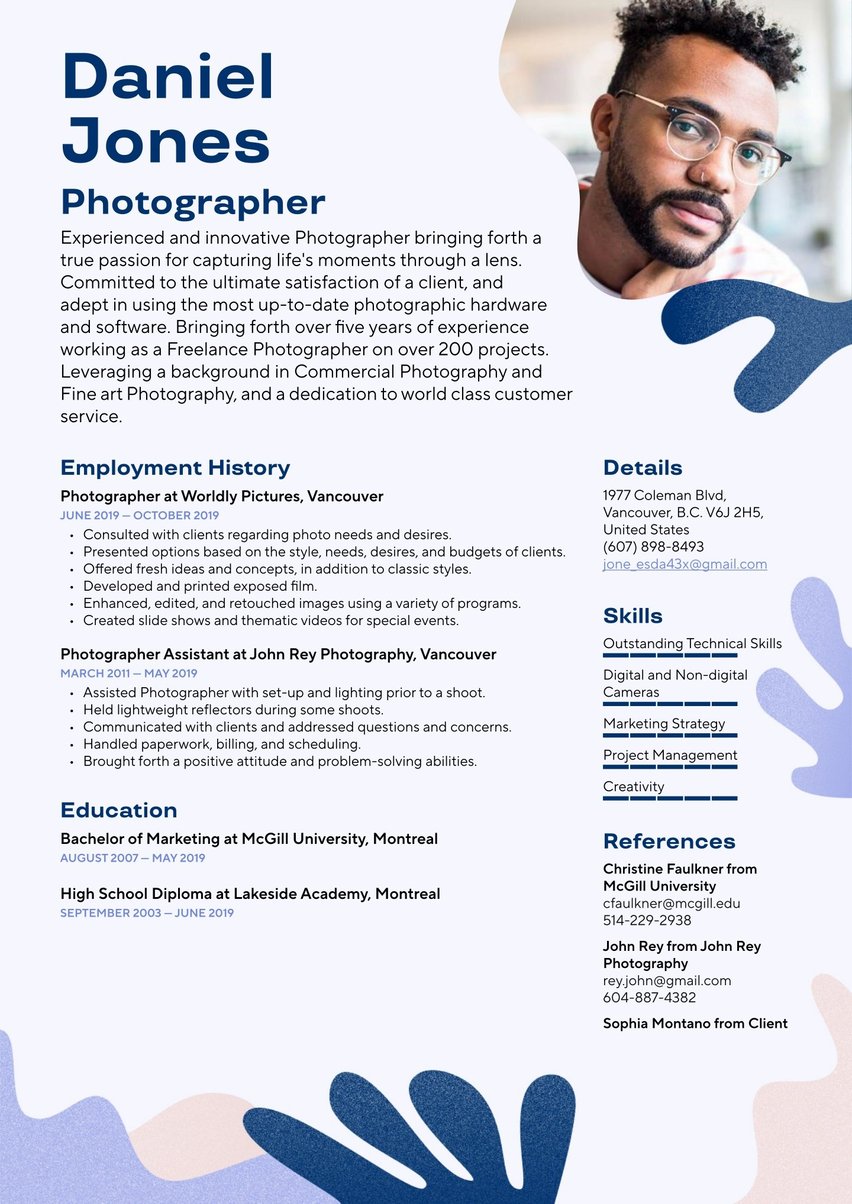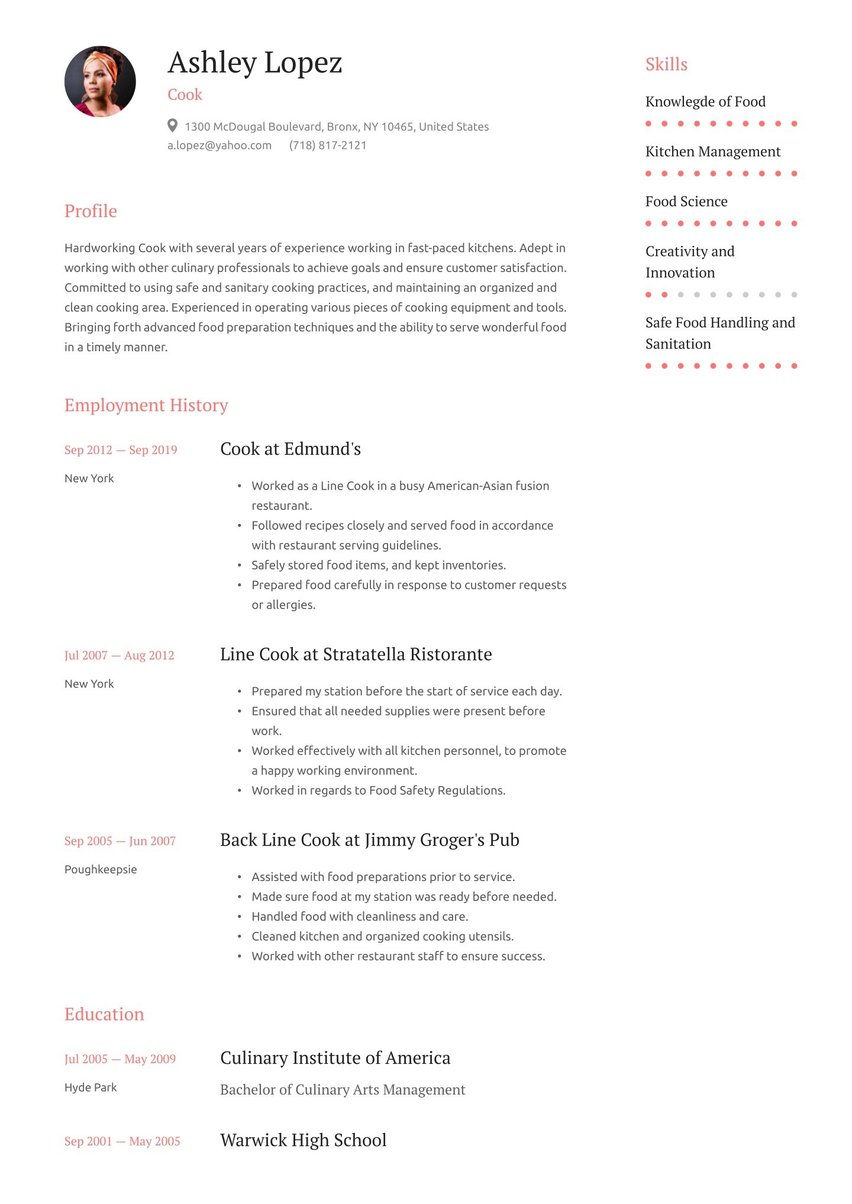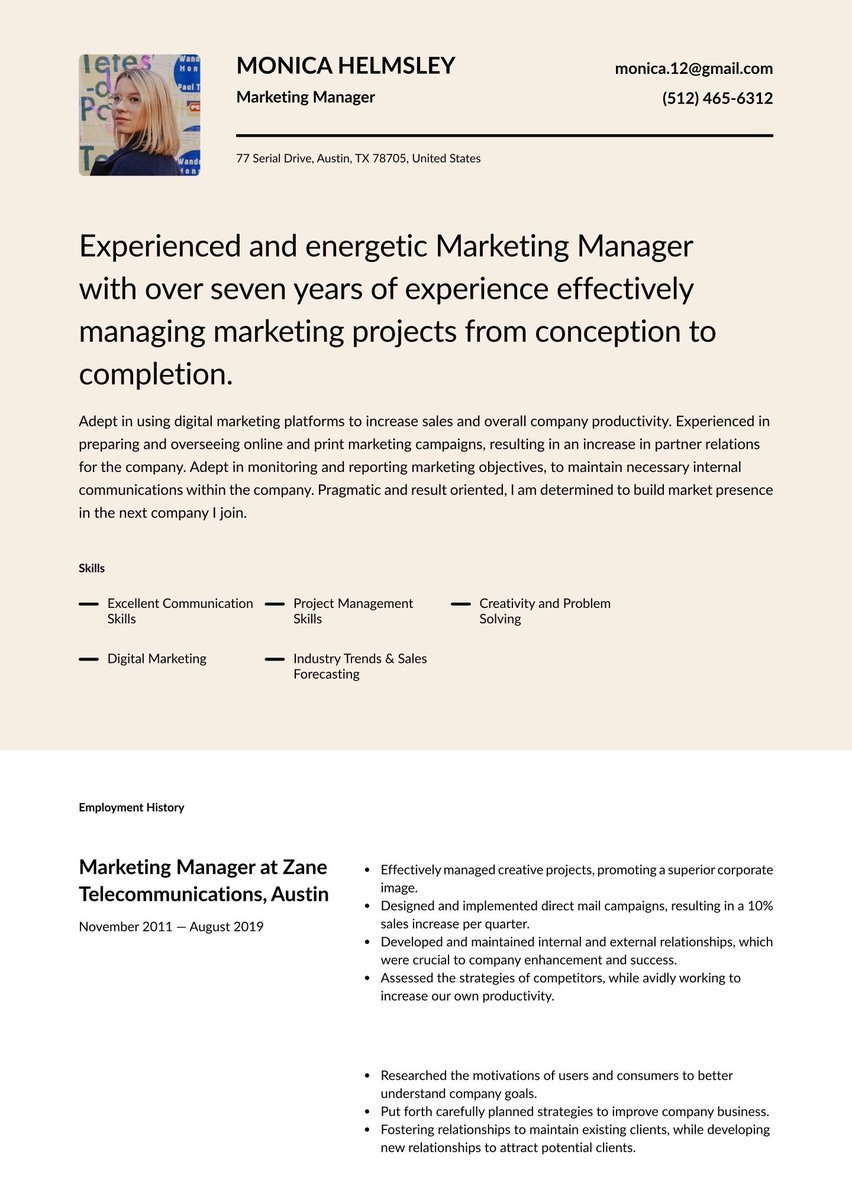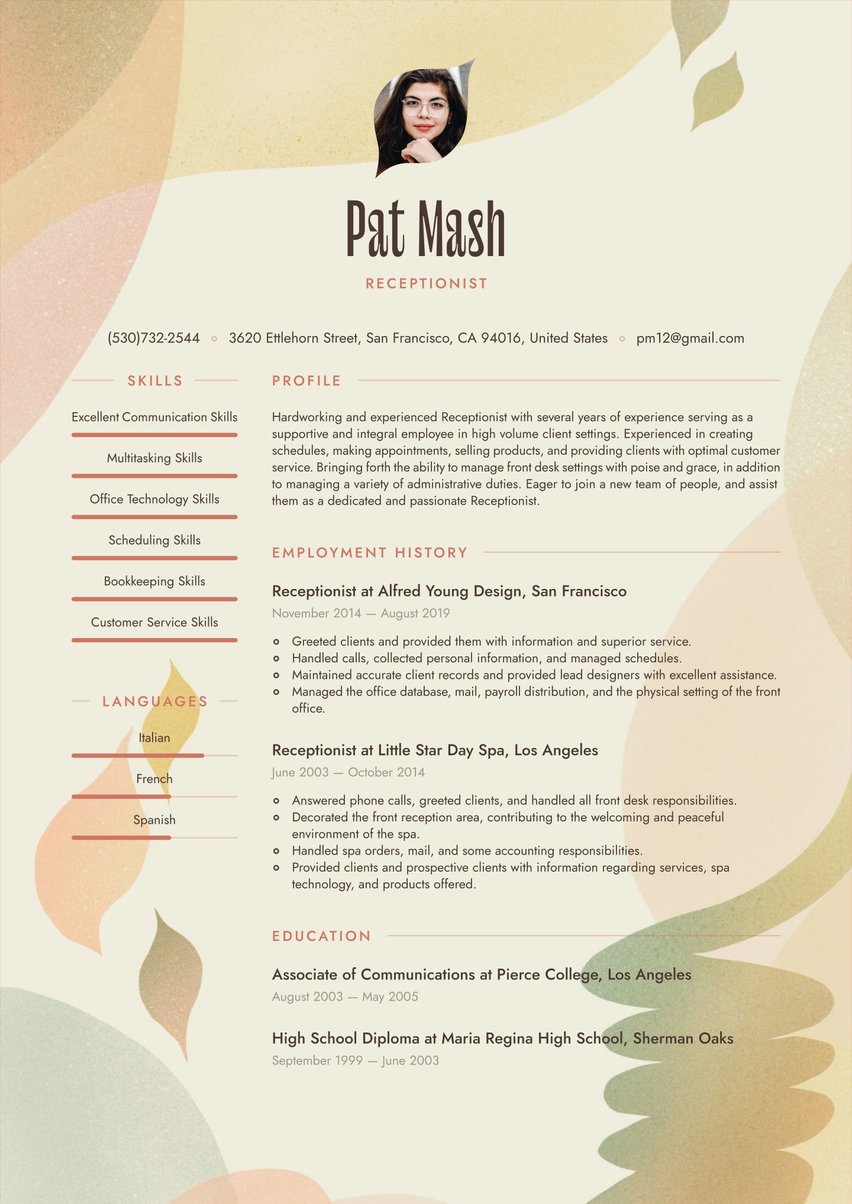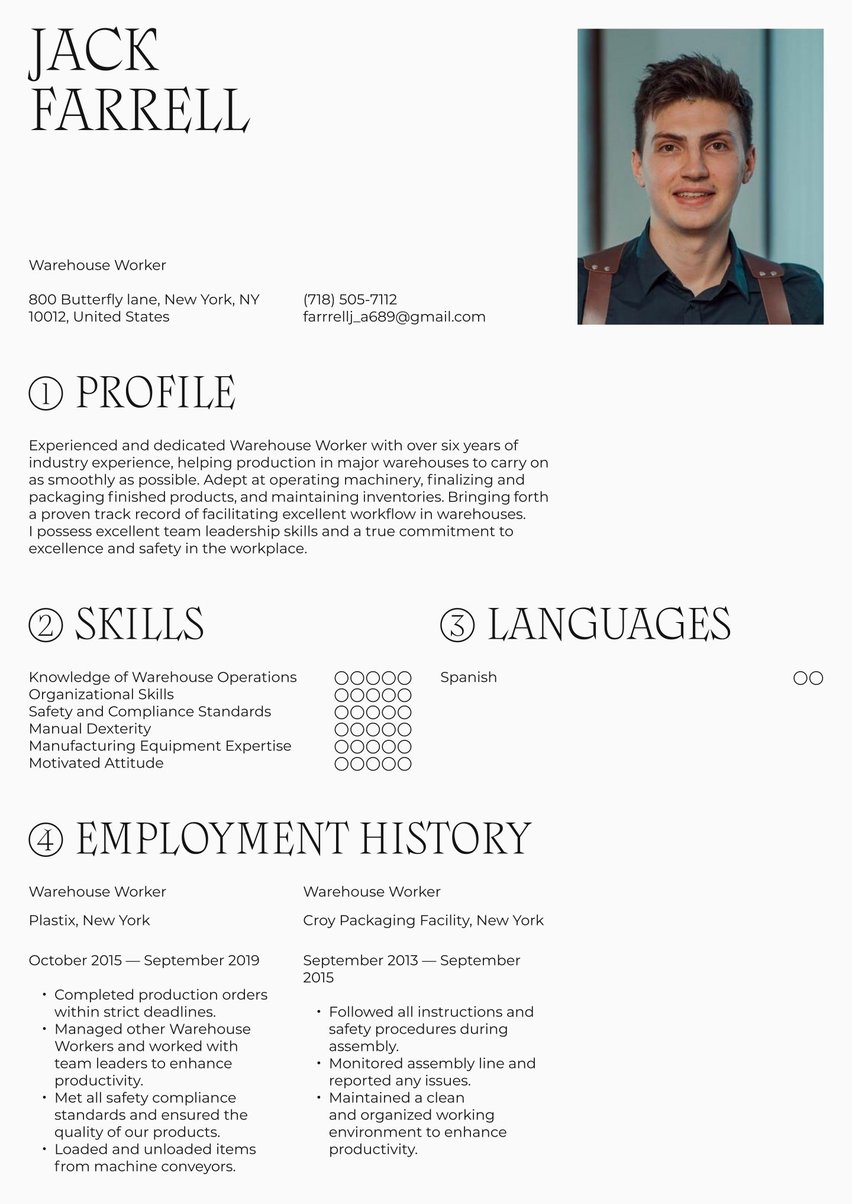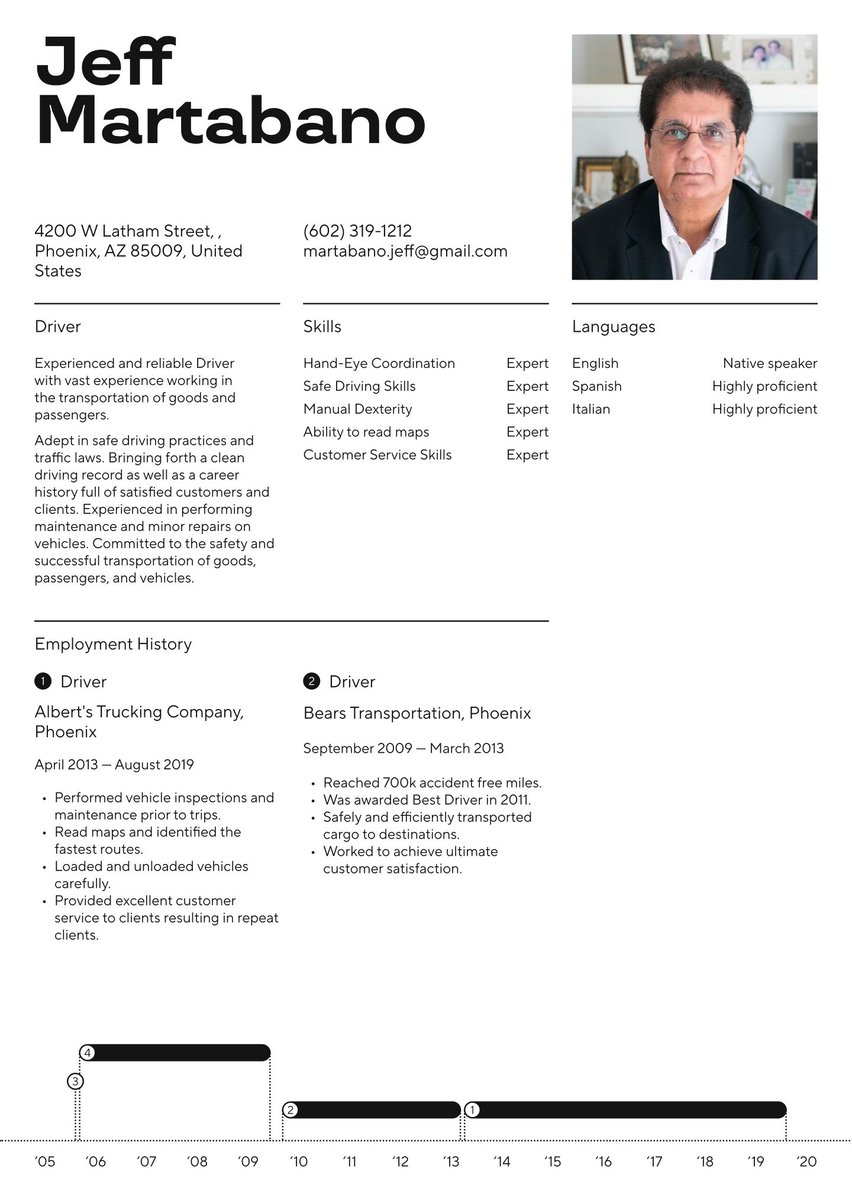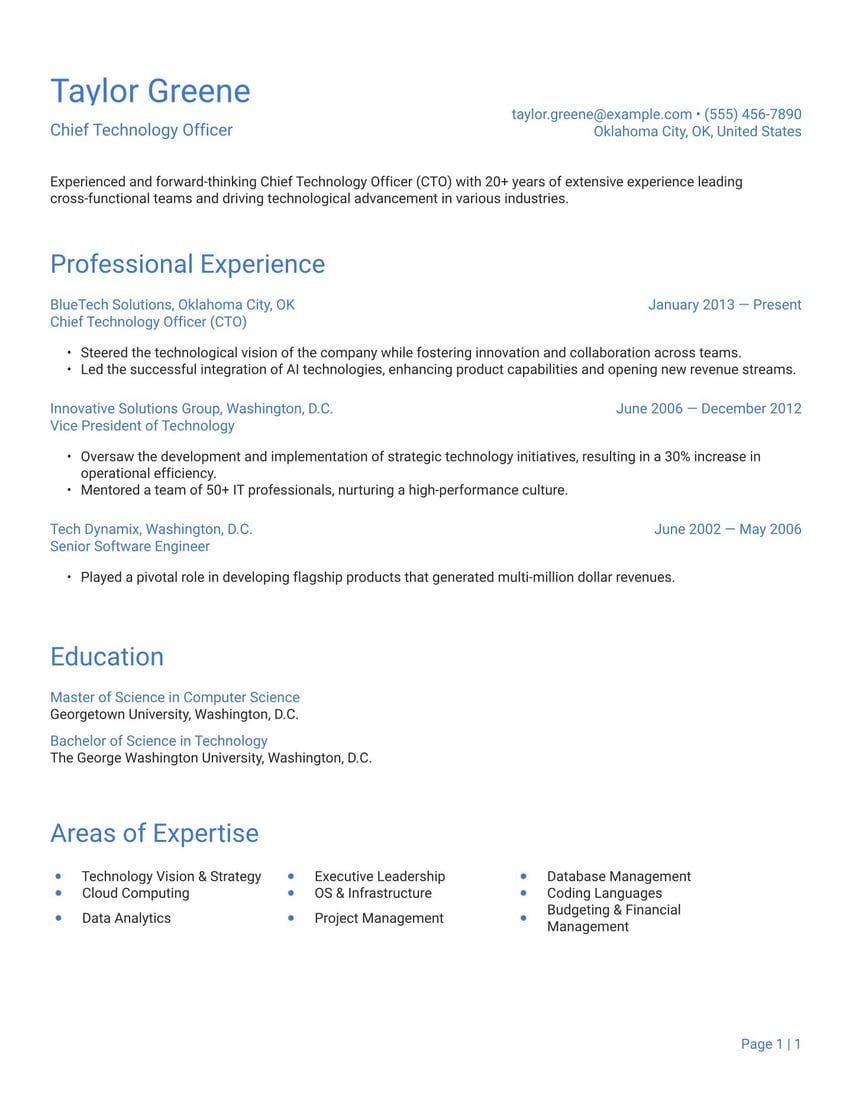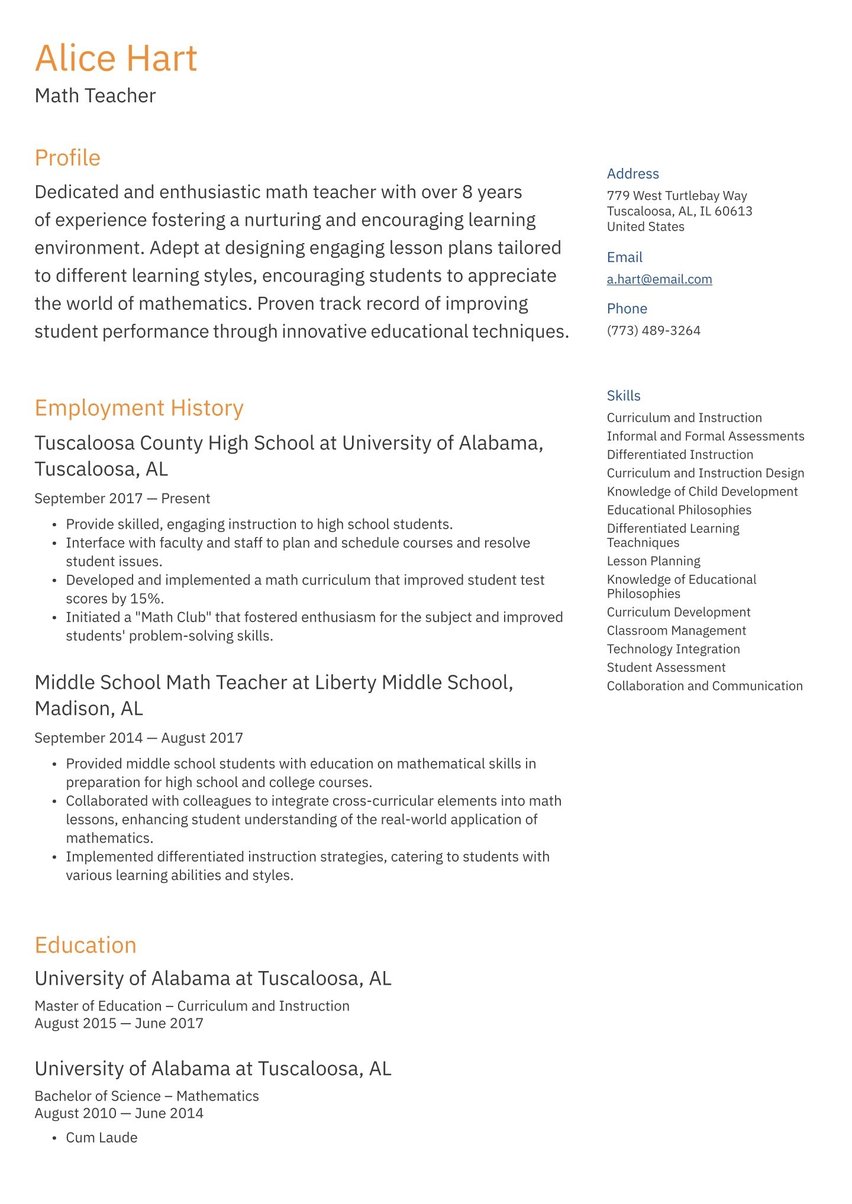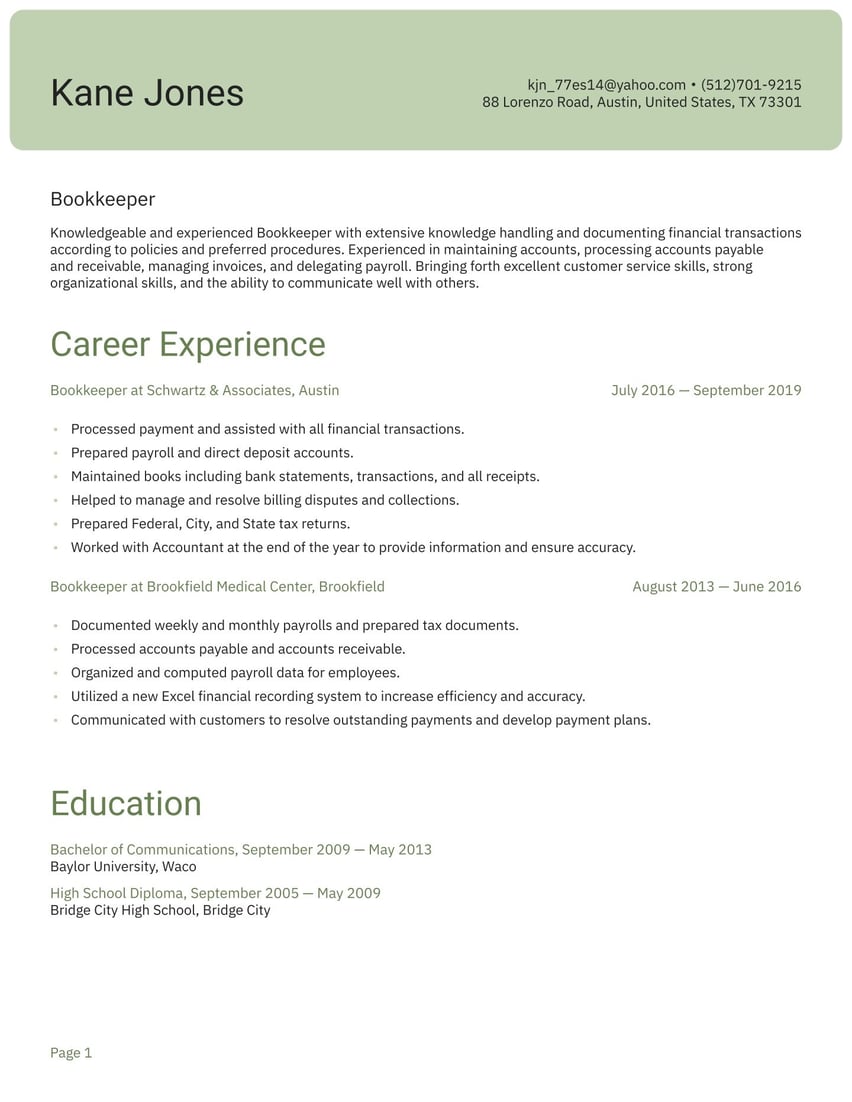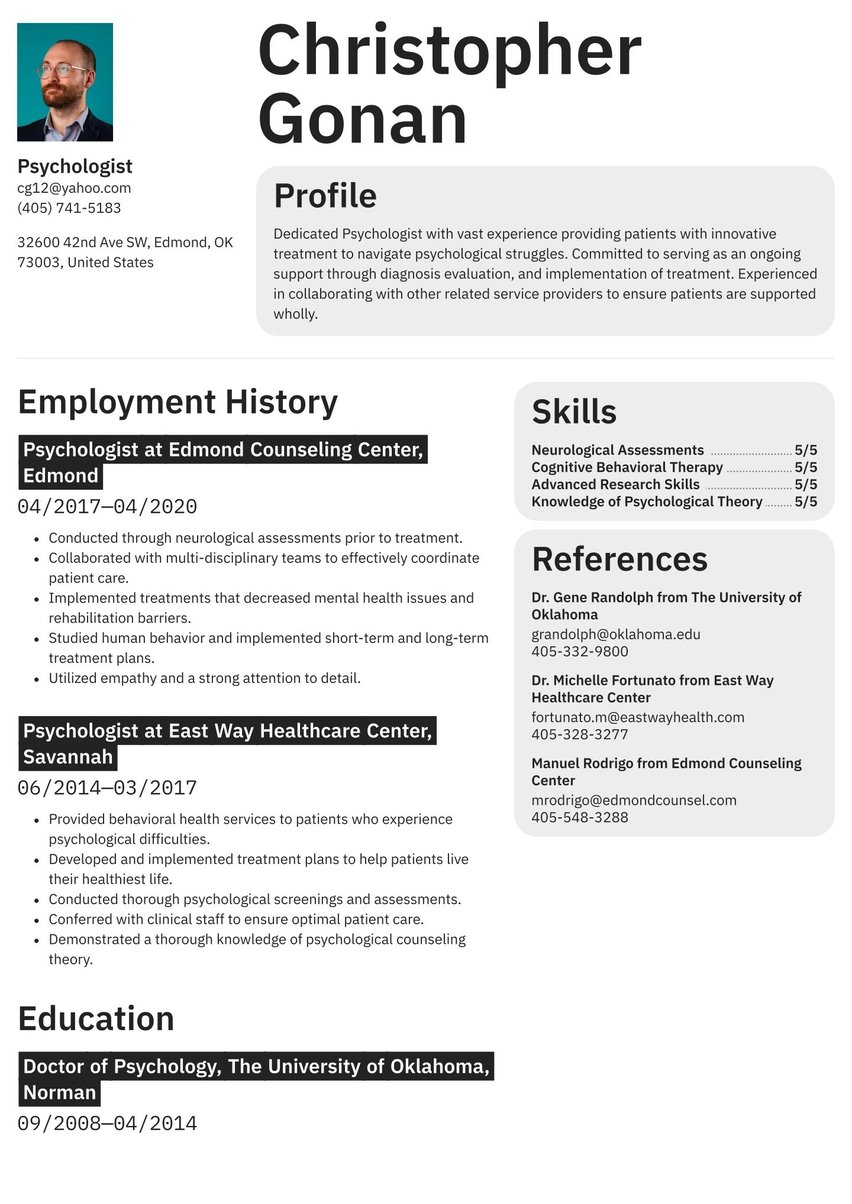When you work in a field as niche as acting, you may wonder how to write a resume that lands you that dream role.
The resume for an actor will look slightly different than a traditional resume. It’s important to convey your personality and creativity while displaying your exceptional acting experience.
Resume guide for an actor resume
Resume.io is here to help. We've created 500+ resume examples for every field and stage of your career. Plus, our resume builder makes creating a compelling resume easier than ever.
This guide, along with our actor resume sample, will show you:
- How to write an actor resume
- Choosing the right resume format for actor roles
- How to add your contact information
- Using summaries to capture your key roles and qualities
- Adding your acting experience
- Listing education and relevant training
- Picking the right resume design/layout to stand out
- What the actor job market looks like and what salary you can expect
How to write an actor resume
The first step to crafting your actor resume is knowing which sections you must include. Almost any resume should contain the following:
- The resume header
- The resume summary (aka profile or personal statement)
- The employment history section
- The resume skills section
- The education section
While these sections apply to an actor's resume as well, you may want to label the “employment history” section something more related to acting, like “credits.” That's because your credits are essential to showing a casting director why you're the right fit for them. These common section titles also help the casting director find specific information they are looking for.
An actor resume should demonstrate your ability to portray different characters and call attention to your understanding of different acting methodologies and techniques, as well as your experience taking on different roles. Your resume should also highlight your ability to work well and collaborate with others, as this is a large part of acting.
Ultimately, you want to display your unique value proposition as an actor, and this starts with your resume. Stick to this formula:
- Highlight accomplishments, not just a list of job duties. Anyone can list the basics of which role they played in what production, but take it a step further to show off your unique impact on the role.
- Tailor your resume for each application. This means you’ll adjust the style or tone to fit what you know of the reader. Rely on those acting chops to get into their head and imagine what they’re hoping to see.
- Convey a creative yet professional image with a resume template designed to be polished without being overly formal or stuffy.
Optimize for the ATS
An applicant tracking system is a system large companies use to collect and manage job applications. Some advanced systems offer algorithms to help scan and filter resumes based on keywords matching the job description.
While it’s not likely that casting teams are using this type of software, it’s worth noting that keywords still matter. Whether a human or an algorithm is reading your resume, you want to make it obvious why you’re a fit.
Imagine an actor job postings lists the following requirements:
- “Acting experience”
- “Formally trained”
- “Voice Trained”
After integrating the keywords, your resume summary could read:
“Seasoned, formally trained actor with 10 years of acting experience and expert voice training.”
To learn more about applicant tracking systems, check out our article on resume ATS optimization.
Choosing the right resume format for an acting resume
Actors with any credits at all should consider the standard resume format that includes an experience or "credits" section. List your previous roles in reverse chronological order if you prefer, but keep in mind it’s not customary to include the dates. This is the industry standard for actors, even if it's not typical advice for other types of resumes. It’s also fine to list your most prominent credits first, rather than in chronological order.
Customization is key when creating an actor resume sample because it allows you to prove your interest in the role and show how much related experience you have. If you've worked in multiple types of performances (i.e. television, movies, theater...), you'll want to group your roles by these categories.
If you’re lacking experience, you can also consider alternative formats, such as the functional format, which focuses more on skills and less on work history. Either way, Resume.io offers several resume templates in our resume builder and plenty of versions of each format available as resume examples.
In terms of design, a acting resume would do well to use a creative layout that shows your talents while still remaining professional and readable.
Include your contact information
A resume is like a business card, so make sure it includes all pertinent information in the header.
Keep in mind that the information on an actor resume will be somewhat different than what you’ll see in many other professions.
- Full name & title. As with any resume, list your first and last name.
- Professional email address. Use a simple format like [email protected].
- Phone number. List a number where you can be readily contacted and make sure you have an open voicemail box with a professional voicemail greeting set up.
- Location. List only your city and state. There is no need to list your street address or zip code.
- LinkedIn. Although LinkedIn isn’t huge in the acting world, you’re welcome to include yours if it shows off your network and skills.
- Photo or headshot. Unlike the corporate world, those in the acting world expect a photo of yourself on your resume.
- Stats. Include stats like your height and, optionally, your weight. If you include a full-color headshot, there’s no need to include hair and eye color.
- Agent information. If you’re represented by an agent and/or manager, add their name(s) and contact information.
- Union affiliation. Include this with the rest of your header info.
Don’t include:
- Date of birth. This is not necessary and could potentially lead to age discrimination.
- Personal details. Leave off your marital status, social security number, passport number, etc.
Deanna Smith
1254 Maple Street.
Wilmington, NC
Make use of a summary
Your resume summary should give the casting director a well-rounded impression of who you are, your most impressive accomplishments, and your strengths—without being weighed down by all the details.
In 2-3 sentences, your summary should encourage the casting director to read the rest of your resume to learn more about your credits. Using action verbs, mention any relevant special skills or education in your summary and showcase your passion for acting.
Don’t just reword your resume. Instead, pull everything together into an overarching narrative that displays why you’re a strong actor and should be under consideration for their role. Use this as a place to demonstrate your unique value as an acting professional. Numbers and specific details can also help your summary stand out in the casting director's mind.
Check out our related examples for more inspiration:
You can find adaptable actor resume example summaries below:
Passionate and motivated recent graduate from SUNY Purchase with a Bachelor of Drama Studie. Bringing forth enthusiasm, a strong work ethic, and a desire to learn the business of professional acting.
Passionate, experienced, and formally trained actor with over 20 credits. Bringing forth enthusiasm, a strong work ethic, and an unrelenting desire to entertain. Active member of SAG-AFTRA.
Passionate, experienced, and formally trained actor with over 50 credits spanning television, film, and theater. Bringing forth enthusiasm, a strong work ethic, and an unrelenting desire to entertain. Fluent in English, Spanish, and French. Active member of SAG-AFTRA.
Outline your actor work experience
While the employment history section is a standard feature of many other resume samples, actors will want to call this section "Credits." This is where you'll list all previous roles, often divided into categories like "Theater" or "Film."
Make sure to include the production name, role name, and the location performed. You can choose to list your roles in reverse chronological order—with the most recent first—or you can list the most prominent or impactful credits first to ensure the casting director sees them right away. You can list your acting roles without job descriptions, as typically actors take on various roles in a short period of time. Focus on being neat and orderly.
Unlike traditional resumes, you won’t write much detail here about what you accomplished or metrics you achieved. Instead, you’ll share details about the type of roles you’ve played. For instance, you’ll want to include the name of the production company and the director of said production along with the play/film/show’s title and your specific role.
If you were designated as an understudy (common in theater roles), denote that within the role heading. If you actually had the chance to perform even as the understudy, include that as well.
If you’ve held film roles, you can clarify which type of role you played: lead, supporting, principal, featured, etc. This makes it clear how prominently you were included in the production. For television roles, common role types include series regular, recurring, guest star, or co-star.
Here's the employment history or "credits" section from our resume example:
Stage Actor at Willmington Playhouse, Willmington
April 2016 - September 2019
Voice Over Actor at Jetcon Studios, Los Angeles
March 2015
Extra Actor at Feature Film, The Great Inspiration, Los Angeles
February 2015
Stage Actor at The Ivoryton Playhouse, Ivoryton
August 2012 - February 2015
How to write an actor resume with no experience
Becoming an actor isn’t easy. It can often take years to get your big break. However, that doesn’t mean it’s not worth trying!
To create a compelling actor resume without direct experience on your resume, focus on your training and transferable skills.
For instance, have you played roles in commercials? Even local, low-budget ads are better than nothing! Maybe you’ve starred in community theater productions. Or, perhaps you’ve held a role requiring live-action “pretending,” like a party princess or magician for hire. And don’t forget any productions in which you’ve been an extra!
Training and classes count, too. Add any related acting courses, public speaking courses, improv classes, or stand up comedy classes you've taken. All of this together will emphasize your passion for acting and your fortitude for not giving up.
Include the relevant key skills that make you a great actor
The skills section is a great place to communicate your strengths due to its blunt, bullet-point nature. It's a good idea to read the job description and take note of any special abilities needed for the role. A kung-fu action movie? Don't forget to mention your martial arts skills. A ballet set in space will need you to highlight a knowledge of dance. A multicultural film may benefit from your language skills.
In acting, both hard and soft skills matter. Hard skills are like those mentioned above, like dance, martial arts, or language knowledge. On the other hand, soft skills are those that pertain more to innate personality traits or how you interact with others: communication skills, for instance.
If you have other relevant experience that might be of interest to the casting manager, such as work as a screenwriter or stage manager, you can briefly mention it here as well.
Our resume builder includes several pre-written key skills to choose from, as well as the option to add your own.
Here’s what the skills box looks like in our actor resume template.
Key Skills and Proficiencies
While this section is important, it’s not the only place to show your skills. Instead, include them throughout the content in your resume.
For an actor, this will mostly take place in the summary or profile section. To enhance the credibility of your skills, provide specific examples and metrics.
For instance, you might highlight:
- Communication skills by describing your ability to speak multiple languages or speak in different dialects or accents
- Acting techniques you’re familiar with, such as the Meisner technique
- Organizational and motivational skills by demonstrating your ability to memorize lines and be punctual and reliable
Look to the job description as a guide for what key skills to include.
Detail your education & relevant actor certifications
While most actors enter the field without completing a formal degree, if you do have a college degree, list it here. If not, education in the form of workshops, courses or other training can go a long way to prove your dedication to the field.
Your education section can also be used to show a casting director which experts you have trained with.
Beyond formal education, this section is a great opportunity to list certifications or training relevant to acting. For example,
- Guild or union memberships. If you’re affiliated with SAG-AFTRA or Equity/AEA make sure it’s listed.
- Training or courses. Document any relevant courses you’ve taken and, if they were led by someone of renown, note that, too.
- Acting-adjacent training. If you’ve got training in screenwriting, directing, or a type of acting you don’t typically do (for example, voice acting when you typically focus on theater) it can still be helpful to list here.
Bachelor of Drama Studies, SUNY Purchase, Purchase
August 2007 - May 2011
High School Diploma, White Plains High School, White Plains
September 2003 - May 2007
Pick the right resume layout and design for an actor resume
As an actor, you know presentation is important—in fact, it's your whole job! It comes as no surprise, then, that the layout and design of your resume format say a lot about the type of actor you are. While many actors make the mistake of thinking flashier is better, a few well-placed design elements can help a casting director take note of your resume without your coming across as eccentric or unprofessional.
Create an attractive header that highlights your name and contact information and include your professional headshot. Keep a balance of text to white space to avoid overwhelming the reader with information.
Avoid going overboard with too much color or multiple fonts, and don’t add graphics or flashy design elements.
If you're looking for help spicing up your resume layout, check out our collection of creative resume templates, which give you a jumping-off point by allowing you to customize the details to your needs.
Actor text-only resume example
Profile
Passionate, experienced, and formally trained actor. Bringing forth enthusiasm, a strong work ethic, and an unrelenting desire to entertain.
Employment history
Stage Actor at Willmington Playhouse, Willmington
April 2016 - September 2019
Voice Over Actor at Jetcon Studios, Los Angeles
March 2015
Extra Actor at Feature Film, The Great Inspiration, Los Angeles
February 2015
Stage Actor at The Ivoryton Playhouse, Ivoryton
August 2012 - February 2015
Skills
- Voice Trained
- Stage Combat
- Horseback Riding
- Modern Dance
- Stanislavski's Acting Method
- Excellent Collaboration Skills
Education
Bachelor of Drama Studies, SUNY Purchase, Purchase
August 2007 - May 2011
High School Diploma, White Plains High School, White Plains
September 2003 - May 2007
Actor job market and outlook
The acting field is projected to grow about 5%, which is about as fast as the average occupation, over the next decade, according to the Bureau of Labor Statistics. This is a welcome statistic, given the challenges to the profession during the pandemic.
Even with the temporary shutdowns, the rise of on-demand streaming has created a need for new content and actors to fill those roles.
- 2023 saw about 76,000 actor positions, with a projected addition of 3,500 by 2033.
- The BLS projects about 8,600 actor job openings each year.
What type of salary you can expect as an actor
A typical working actor may work part-time, with irregular hours and schedules. Most such actors are paid a daily or weekly rate. Translated into an hourly rate, however, the median actor wage was $20.50 at the last assessment.
The lowest 10 percent of actors earn less than what translates to $13.00 per hour, while the highest 10 percent earn over $100 an hour. These discrepancies are likely due to the various types of acting, from theater to film to local advertising.
Of course, some actors make it big and end up as a big star in Hollywood—you never know, it could be you!
Key takeaways for building an actor resume
Actors need resumes just like any other professionals, but the structure of their resumes can change depending on their experience and the role. The “credits” section is the heart of your resume, but it’s important to include any prestigious programs you’ve attended and any union affiliation as well.
Start your job search with a resume builder, but why stop there? With resume.io’s 18 powerful tools, you can search for jobs, track your journey, prepare for interviews (or auditions!), and negotiate salaries—all with our inclusive career toolkit at your fingertips.





